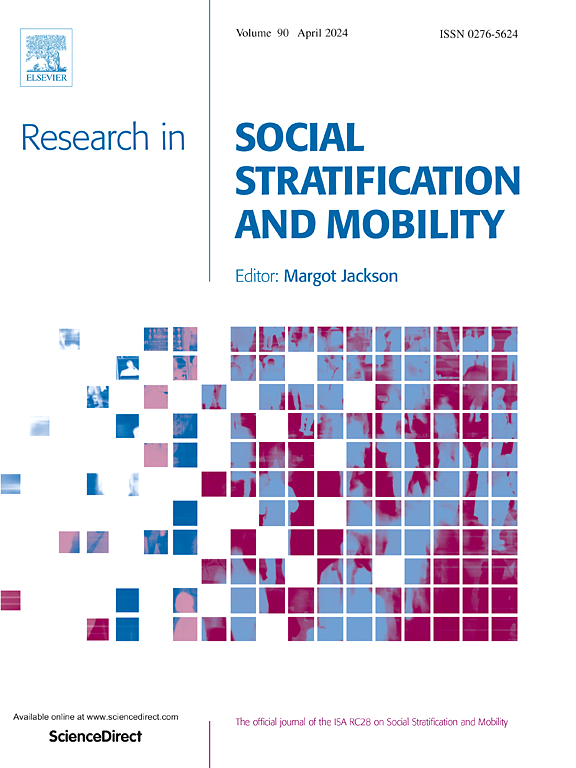Beauty pays, but not under all circumstances: Evidence on gendered hiring discrimination from a novel experimental treatment using deepfakes
IF 2.7
1区 社会学
Q1 SOCIOLOGY
引用次数: 0
Abstract
Using deepfaked job application videos as a novel experimental treatment, this study analyses the effects of physical attractiveness for men and women on their hypothetical hiring chances. Based on status construction theory, we argue that whether gendered expectations through physical attractiveness translate into better hiring chances depends on the social context. To test this theoretical claim, we conducted a 2×2×2 factorial survey experiment among respondents with personnel responsibilities (N = 493). Using deep-learning techniques, we swap the faces of fictitious male and female candidates in application videos, thus varying gender and physical attractiveness while holding everything else constant. Additionally, we manipulate the occupational context with job advertisements for a male-typed and a female-typed job. Results show that attractive applicants score higher in competence ratings and are more likely to be invited for a job interview than less attractive candidates. However, only men consistently profit from their looks, while women benefit from a beauty premium in the female-typed, but not in the male-typed job. These results strongly support the idea that physical attractiveness works as a status characteristic, triggers gendered expectations, and leads to beauty-based treatment differences. This study suggests that the use of deepfakes is a promising avenue to move inequality research forward.
美貌会带来回报,但并非在所有情况下都是如此:从使用深度伪造的新型实验处理中发现性别雇佣歧视的证据
本研究利用深度伪造的求职视频作为一种新颖的实验处理方法,分析了男性和女性的外貌吸引力对其假定录用机会的影响。基于地位建构理论,我们认为,性别期望是否通过外貌吸引力转化为更好的聘用机会取决于社会环境。为了验证这一理论主张,我们对负有人事责任的受访者(N = 493)进行了一次 2×2×2 因式调查实验。利用深度学习技术,我们将应聘视频中虚构的男性和女性应聘者的面孔互换,从而在保持其他因素不变的情况下改变性别和外貌吸引力。此外,我们还通过男性类型和女性类型工作的招聘广告来操纵职业背景。结果显示,与吸引力较低的求职者相比,有吸引力的求职者在能力评价中得分更高,更有可能被邀请参加面试。然而,只有男性始终能从自己的外表中获益,而女性在女性类型的工作中能从美貌溢价中获益,但在男性类型的工作中却不能。这些结果有力地支持了这样一种观点,即外貌吸引力作为一种身份特征,会引发性别期望,并导致基于美貌的待遇差异。这项研究表明,使用深度伪造是推进不平等研究的一个很有前途的途径。
本文章由计算机程序翻译,如有差异,请以英文原文为准。
求助全文
约1分钟内获得全文
求助全文
来源期刊
CiteScore
7.80
自引率
6.00%
发文量
46
期刊介绍:
The study of social inequality is and has been one of the central preoccupations of social scientists. Research in Social Stratification and Mobility is dedicated to publishing the highest, most innovative research on issues of social inequality from a broad diversity of theoretical and methodological perspectives. The journal is also dedicated to cutting edge summaries of prior research and fruitful exchanges that will stimulate future research on issues of social inequality. The study of social inequality is and has been one of the central preoccupations of social scientists.

 求助内容:
求助内容: 应助结果提醒方式:
应助结果提醒方式:


